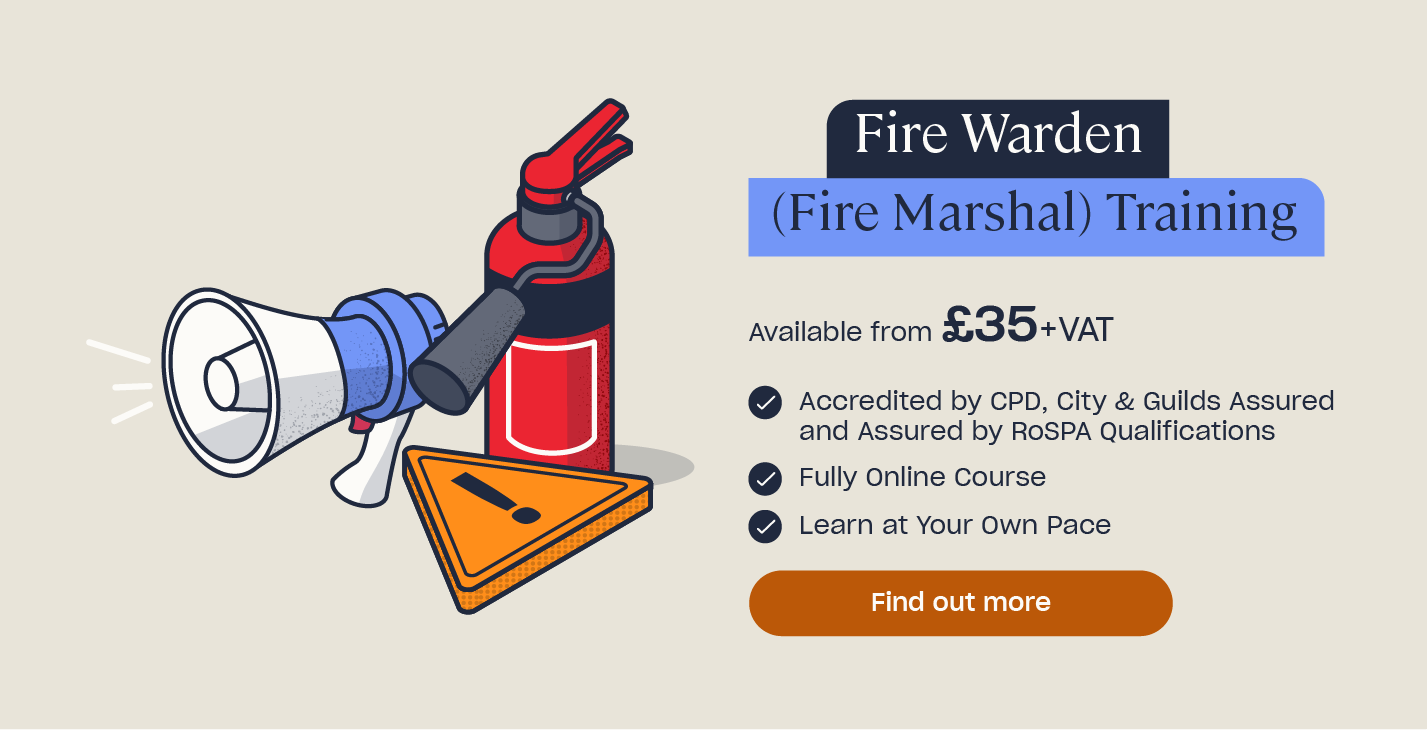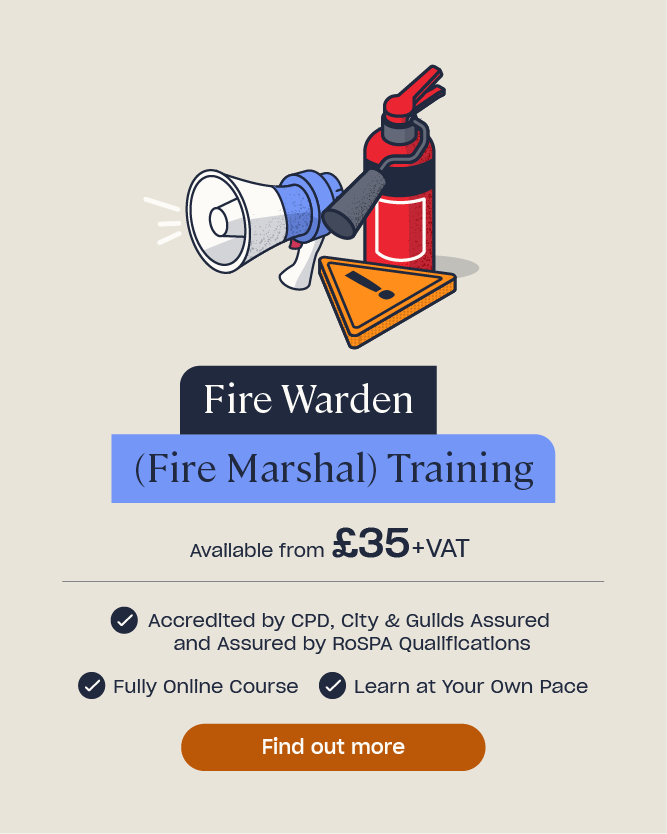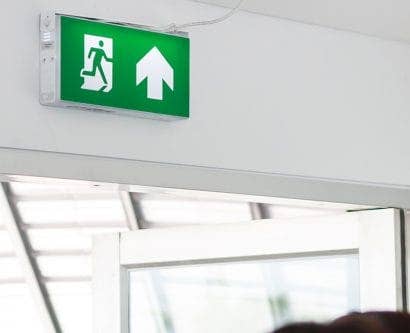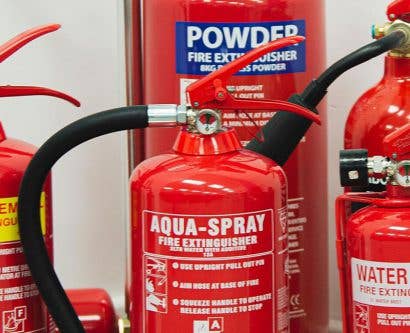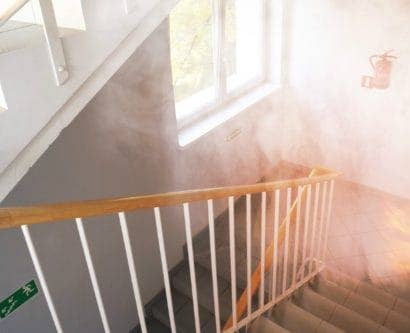How to Become a Fire Marshal (Fire Warden)
Fire marshals play an important role in keeping premises safe from fire. They provide support that reduces the risk of fire and they help to keep people safe during an emergency. Anyone who is responsible for workplace safety has a duty to keep people safe and manage any hazards that could cause a fire. Having a designated fire marshal on site enables businesses to manage these responsibilities. In this article we will explain what a fire marshal is, their duties and the necessary steps to become a certified fire marshal.
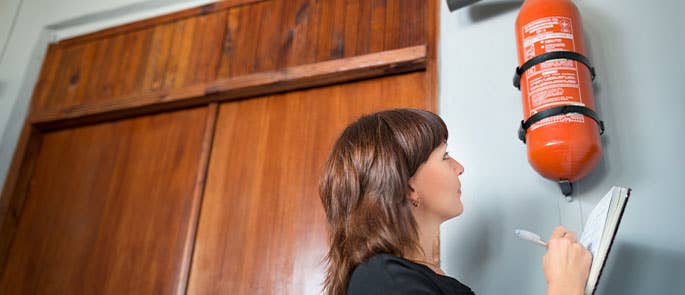
What is a Fire Marshal?
A fire marshal is a member of staff who provides assistance to a business in terms of fire safety. It’s a supplementary responsibility that people volunteer for or are assigned and it is a role that they take on alongside their employment responsibilities. Fire marshals are also often referred to as fire wardens and in the UK these titles refer to the same role and responsibilities.
The legal necessity for a fire marshal is somewhat complex. Businesses have a legal duty to keep employees, customers and the public safe. The Regulatory Reform (Fire Safety) Order 2005 mandates that all businesses have a fire safety policy for their workplace, carry out fire risk assessments and take appropriate action to prevent fires and protect employees. This responsibility can include assigning a competent person who will be given the task of implementing and monitoring a workplace’s fire procedures. That person does not legally have to have the title of ‘fire marshal,’ however as the responsible or competent person they legally must:
- Carry out a fire risk assessment of the premises and review it regularly
- Tell staff or their representative about any risk they’ve identified
- Put in place, and maintain, appropriate fire safety measures
- Plan for an emergency
- Provide staff information, fire safety instruction and training
Whilst it is not a legal necessity to specifically have a fire marshal, it’s good fire safety practice to do so and it can help to manage safety concerns in businesses of all sizes and in any industry. Additionally, some sectors and businesses have specific requirements for fire safety based on risk and some insurers may require a business to have a fire marshal in order to meet policy terms. As such, having a fire marshal is a good way to fulfil any additional requirements and help to keep people safe and a business legally compliant.
Duties of a Fire Marshal
A fire marshal’s main responsibility is to prevent fires. They do this by offering assistance to the business owner or manager in terms of fire safety. A fire marshal has proactive duties and reactive duties.
Proactive Duties
Proactive duties refer to the preventative steps that a fire marshal takes to try to prevent a fire from occurring in the first place. These duties include:
- Checking that emergency exits are kept free from obstruction at all times.
- Checking that fire extinguishers are in the right position, have been serviced and are clearly indicated by signs.
- Checking that fire doors are in good working order and that they are kept closed.
- Checking that all emergency lighting is in working order.
- Regularly checking fire alarms.
- Organising fire drills and ensuring that employees know how to exit the building in the event of a fire.
- Checking that all electrical devices have been inspected (PAT).
Reactive Duties
Reactive duties refer to the steps a fire marshal takes in the event of fire. These duties include:
- Raising the alarm in the case of fire and contacting the fire brigade.
- Closing doors and fire doors to prevent the fire spreading.
- Directing people to the emergency exits.
- Assisting those with additional needs such as disabled or pregnant members of staff.
- Conducting a floor sweep and ensuring that everyone has left the premises.
- Tackling small blazes with the appropriate fire extinguisher and only when safe to do so.
- Taking a register and ensuring that everyone has exited safely and that all absences are accounted for.
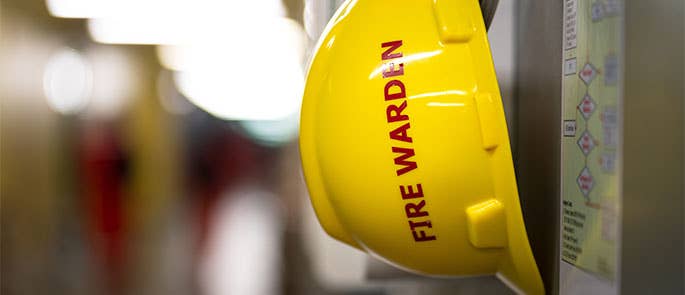
What Qualifications Do you Need to Be a Fire Marshal?
You do not need any formal qualifications to become a fire marshal, however you will need to undertake fire marshal training and you must be aged 16 or over to complete the training. If you have been appointed a fire marshal, either because you volunteered or were chosen, your employer should cover the cost of any training. Employers have a legal responsibility to train all staff on fire safety equipment and drills. This obligation also includes paying for additional training, such as fire marshal training.
Upon completing your training you will likely receive a fire marshal certificate. Fire marshal certification is not standardised across the UK but there are core elements to fire marshal training that all reputable training providers should offer. These include:
- Explaining the roles and responsibilities of a fire marshal.
- Explaining the causes of a fire.
- Discussing the importance of effective fire risk assessments.
- Outlining fire safety arrangements and how to maintain a safe environment.
- Exploring emergency procedures and how to respond to a fire.
Want to Learn More?
All employees should have a base level of understanding of fire safety so that they can play their part in preventing fires. Our Fire Safety Awareness Training equips employees with the knowledge and skills to support fire safety in the workplace. For those who wish to deepen their understanding and take on additional responsibilities, our Fire Warden (Fire Marshal) Training provides you with the knowledge to proactively assist in maintaining fire safety.
Fire Marshal Skills
As being a fire marshal is an additional role, you do not need specific skills to become one. The skills that you utilise in your day to day role will be beneficial to any additional responsibilities and so you don’t necessarily need to have a specific set of skills to become a fire marshal.
There are certain hard skills that a fire marshal must have and will gain upon completion of fire marshal training. These hard skills include but are not limited to:
- How a fire starts
- How to use a fire extinguisher (PASS)
- The different types of fire extinguishers
- How to plan escape routes
- Knowledge of workplace fire safety legislation
- How to conduct a fire risk assessment
- Fire door requirements
There are also a range of soft skills that it can be beneficial for a fire marshal to possess. These include but are not limited to:
- Good communication
- Organisational skills
- Leadership
- Adaptability
- Patience
- Level-headedness
- Reliability
- Critical thinking
- Active listening
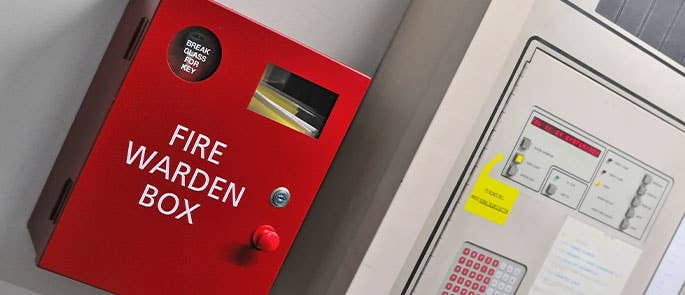
How to Become a Fire Marshal
To become a fire marshal:
- Express interest to your employer that you wish to become a fire marshal.
- Complete training from a reputable provider. The training can be virtual or in-person and will cover the vital knowledge to maintain fire safety.
- Gain certification upon completion of the course.
- Upon certification perform your proactive duties such as conducting a fire risk assessment or checking emergency evacuation plans.
- Regularly review the fire safety practices of your workplace and ensure that any training is kept up-to-date.
As mentioned above there is no standardised certification for fire marshal training. As such, the duration and content of the course that you take may vary, however as long as it is from a reputable training provider, such as High Speed Training, it will include the vital knowledge to help you perform your duties and keep people safe.
Fire safety is everyone’s responsibility and fire marshals provide vital additional support and guidance that helps to keep everyone safe. Becoming a fire marshal is a significant responsibility that should not be taken lightly. However, with sufficient and regular training, you can gain the essential knowledge and skills to help keep everyone safe from fire.
Further Resources:
- Fire Warden (Fire Marshal) Training
- The Fire Safety Responsibilities of a Fire Warden
- How Many Fire Wardens Does My Business Need?
- Fire Warden Quiz
- Fire Safety Quiz


